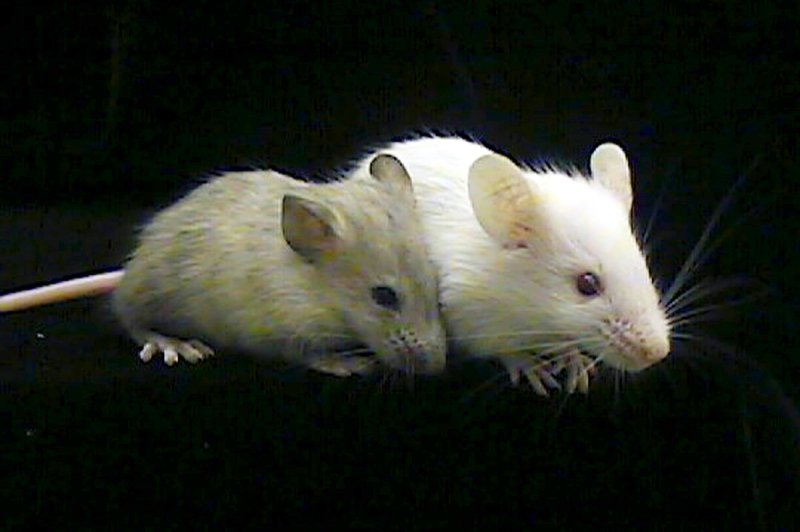New research showed lab mice born to stressed moms are more likely to binge eat when stressed themselves. Photo by rw/HO/Carolyn Cronin/UPI |
License Photo
May 30 (UPI) -- New research suggests binge eating behavior is partially inherited. In lab tests, scientists found mice born to stressed mothers were more likely to display binge eating behaviors later in life.
Stressed moms passed along binge eating-related epigenetic tags on their DNA to female pups. The tags only triggered binge eating when the offspring were subjected to stressful environments.
Previous studies have suggested a link between early-life trauma and binge eating, but isolating the biological connections has proven difficult.
"Here we established a model where we can actually show that early life stress increases the likelihood of binge eating in females," neurobiologist Alon Chen said in a news release.
"The second thing that is really interesting is that prenatal stress is causing an epigenetic signature in the embryo's brain," said lead researcher Mariana Schroeder.
Researchers manipulated the hormone system that controls cortisol release to increase the anxiety levels of pregnant mothers during their third trimester. To minimize their level of intervention, scientists developed a hand-free method for stimulating corticotropin-releasing factor activity.
"We didn't actually handle the mice at all; we just changed the water that included the genetic trigger in the third trimester," Chen said.
Though female mice born to stressed mothers shared CRF-related epigenetic tags in hypothalamus cells, the pups didn't exhibit binge eating behaviors until they too became stressed.
Researchers measure the eating habits of stressed offspring and found those born to stressed mothers were more likely to eat large amounts of food during short windows of time.
Because chemicals from foods control how genes are expressed and epigenetic tags are triggered, researchers hypothesized that a balanced diet could help mice overcome their genetic disposition.
Because the identified epigenetic tags were methyl-grabbing, researchers decided to feed the affected mice a diet rich in methyl-donating vitamins, like B12 and folate. The balanced diet prevented binge eating behaviors in the female pups.
It's possible targeted diets could prevent similar predisposed behaviors in humans.
Researchers say the findings -- detailed in the journal Cell Metabolism -- are a reminder of the importance of limiting stress during pregnancy.
"We all know this, but people ignore it for various social or economic reasons," said Chen. "But the price we pay later in life -- whether it's psychiatric disorders, metabolic syndromes, or heart-related illnesses -- is heavily impacted by the way your brain was programmed early in life."















